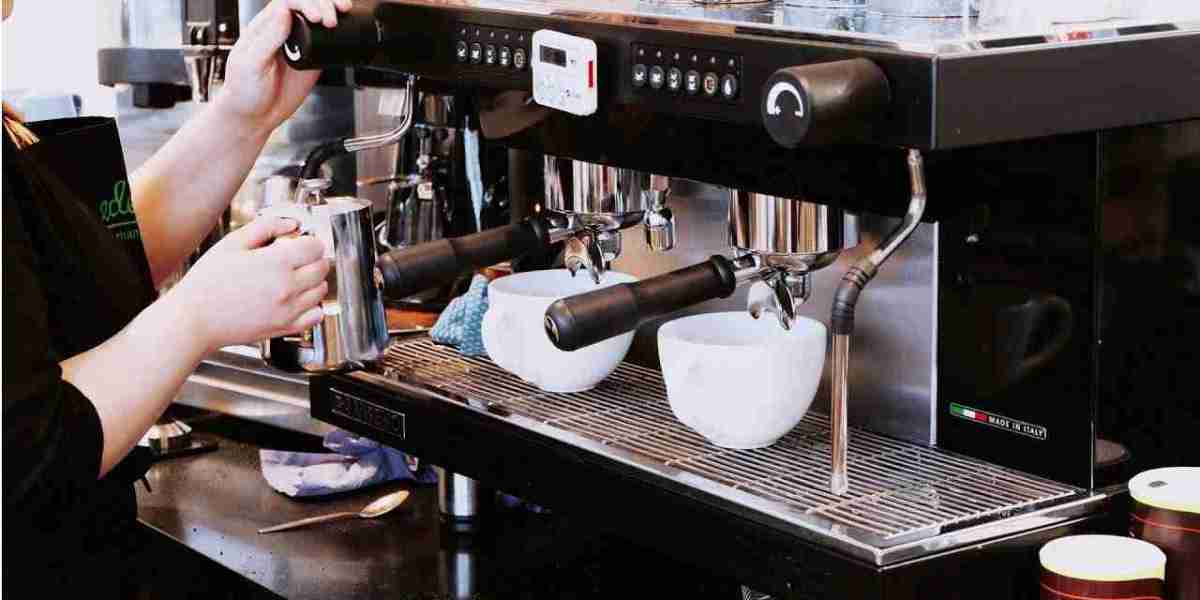The global coffee machine market has seen steady growth over the last few years due to the ever-increasing demand for coffee across the globe. Coffee has become an integral part of many consumers' lives, fueling both their work and relaxation habits. However, entering this lucrative market presents several barriers to both new entrants and even established brands considering new product lines. Understanding these entry barriers is essential for anyone aiming to break into the coffee machine business.
Market Competition and Brand Recognition
One of the primary barriers to entry in the coffee machine market is fierce competition from well-established brands. Companies such as Keurig, Nespresso, and Breville have significant market shares and strong brand loyalty, which poses a challenge for newcomers. These major players dominate the market with innovative features, powerful marketing campaigns, and strong distribution networks. Consequently, emerging brands must find a niche or develop unique selling propositions (USPs) to effectively differentiate themselves in such a competitive landscape.
New market entrants may also find it difficult to attract consumer attention due to high brand recognition and customer loyalty towards incumbent brands. Overcoming this initial hurdle requires both substantial marketing investments and product development that brings something new to the table, such as improved brewing technology, ease of use, or sustainability aspects.
High Capital Investment
Another significant barrier is the substantial capital investment required to enter the coffee machine market. Developing, manufacturing, and distributing a high-quality coffee machine demands considerable financial resources. Product design, prototyping, and obtaining necessary certifications all come with high upfront costs.
Furthermore, entering the retail or online space involves costs for inventory, supply chain logistics, and marketing campaigns. For smaller companies or startups, securing funding can prove challenging, especially in a market that favors well-capitalized giants. This entry barrier can significantly limit the market access for smaller brands that struggle to gather the necessary capital to produce reliable products and scale up their operations.
Regulatory Compliance and Standards
In the coffee machine market, safety and environmental standards are crucial. Regulators across different regions, including the European Union, United States, and Asian countries, enforce strict regulations on consumer products, including household appliances such as coffee machines. These regulations cover areas like electrical safety, product durability, and environmental impact, such as adherence to energy efficiency standards.
For new entrants, understanding and adhering to these regulations can be complex and costly. Failure to meet industry standards could result in product recalls, legal issues, and a damaged reputation. Additionally, navigating the regulatory environment varies greatly depending on the target market, making it a multifaceted barrier to entry for new companies without the right expertise.
Supply Chain Complexity
The global nature of coffee machine manufacturing means that players often depend on an intricate supply chain that includes sourcing raw materials, components, and labor from different parts of the world. For new entrants, ensuring a reliable and cost-effective supply chain is vital, but building one can prove to be a complex and challenging task.
From components like pumps, sensors, and heating elements to packaging materials, global supply chain dependencies create vulnerabilities. Disruptions such as fluctuations in raw material prices, supply chain bottlenecks, or geopolitical tensions can negatively impact the production and distribution process. Small businesses might struggle to secure quality materials on time or negotiate favorable terms with suppliers, resulting in higher costs or delays.
Technological Advancements and Innovation
The coffee machine market is characterized by continuous technological advancements, with frequent innovations in areas such as brewing systems, automated features, and smart appliances. Established brands invest heavily in research and development to remain competitive by introducing cutting-edge technology that appeals to today’s tech-savvy consumer.
For new market entrants, staying abreast of technological trends can be costly and technically demanding. Investment in research and development, including integrating features such as smart connectivity, IoT compatibility, and advanced temperature control systems, is necessary for those aiming to create standout products. However, balancing innovation with affordability can be challenging and may require a sizable budget for R&D.
Distribution and Logistics Challenges
The coffee machine market has a global reach, and the effective distribution of products is essential to success. For newcomers, establishing a robust distribution network—whether through retail partners, e-commerce platforms, or direct-to-consumer channels—presents challenges.
These distribution challenges range from gaining access to prime retail shelf space to ensuring efficient last-mile delivery logistics for e-commerce operations. Furthermore, companies may struggle with after-sales services, which are vital for customer retention and satisfaction in this market. Without the necessary logistics infrastructure, new brands may fail to meet customer expectations, harming their reputation and limiting their reach.
Conclusion
The coffee machine market offers immense opportunities, but there are various hurdles that companies must navigate to gain a foothold. From fierce competition and regulatory compliance to technological advancements and logistical complexities, new entrants face significant barriers. The market's growth potential requires firms to invest heavily in branding, innovation, capital, and distribution networks.
Understanding these entry barriers is crucial for anyone looking to enter this sector, whether they are a startup or an established company venturing into new coffee machine lines. Success in this market will depend on how well a brand can differentiate itself while effectively overcoming these challenges.




